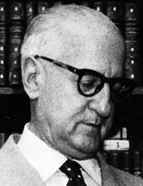

Octávio Tarquínio de Sousa Amaranto, son of Bráulio Tarquínio de Sousa Amaranto and Joana Oliveira de Sousa, was born on 7 September 1889 in Rio de Janeiro and died in a plane crash in the same city on 22 December 1959. In 1907, he graduated in Law from the School of Legal and Social Sciences of Rio de Janeiro, at a time when higher education in Brazil was strongly influenced by various scientific doctrines. He soon entered the Brazilian civil service, first as a second officer in the postal administration, then as director of the Postal Service of Rio de Janeiro (between 1914 and 1918). Between 1918 and 1932, he was Attorney General of the Federal Court of Accounts, and in 1924, he represented the Brazilian government at the International Conference on Emigration and Immigration held in Rome. In 1932, he became Minister of the Federal Court of Accounts, presiding over it between 1935 and 1936, and then serving as its vice-president, retiring in 1946. He wrote his first contributions to the press while still a student, his first book, Monólogo das Coisas
(Monologue of Things) – a volume of literary short stories laden with personal memories – was published in 1914 by Tipografia Besnard Frères, in Rio de Janeiro. He contributed regularly to O Estado de São Paulo between 1916 and 1917. In the following decade, he translated into Portuguese, with an introductory study, Rubáiyát, a classic work by the Persian poet Omar Kháyyám (1048-1131), published by José Olympio in Rio de Janeiro in 1928. In 1933, he was one of the founders of a literary association, the Sociedade Felipe d’Oliveira, of which he would be the director throughout its existence (from 1934 to 1945), editing its annual journal, Lanterna Verde. Between 1935 and 1937, he wrote on several occasions for O Jornal, in Rio de Janeiro; he would later write articles in many other newspapers such as O País, A Noite, Correio da Manhã and Tribuna da Imprensa, all in Rio de Janeiro, and also Folha da Manhã, in São Paulo.
This work is financed by national funds through FCT - Foundation for Science and Technology, I.P, in the scope of the projects UIDB/04311/2020 and UIDP/04311/2020.
